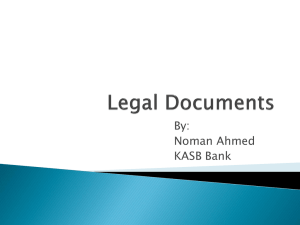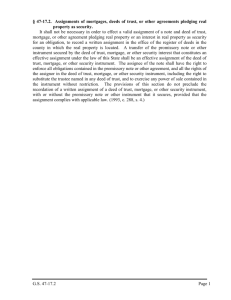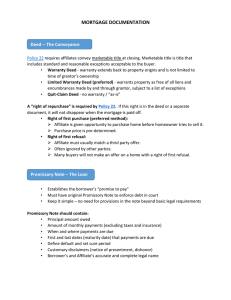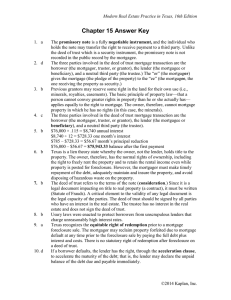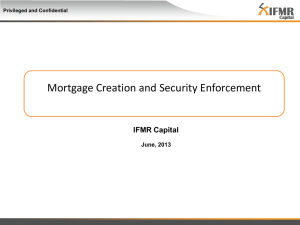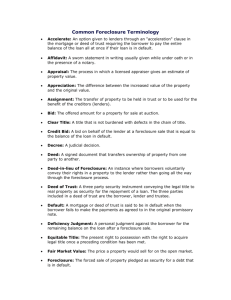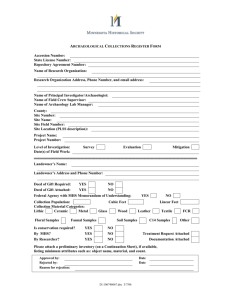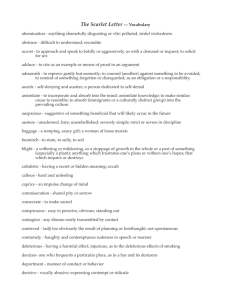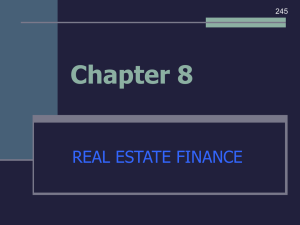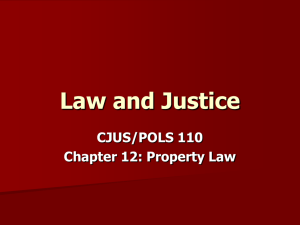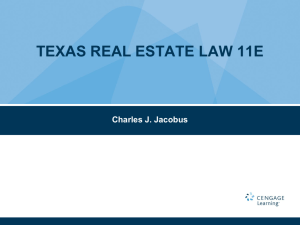Basic Definitions:
advertisement
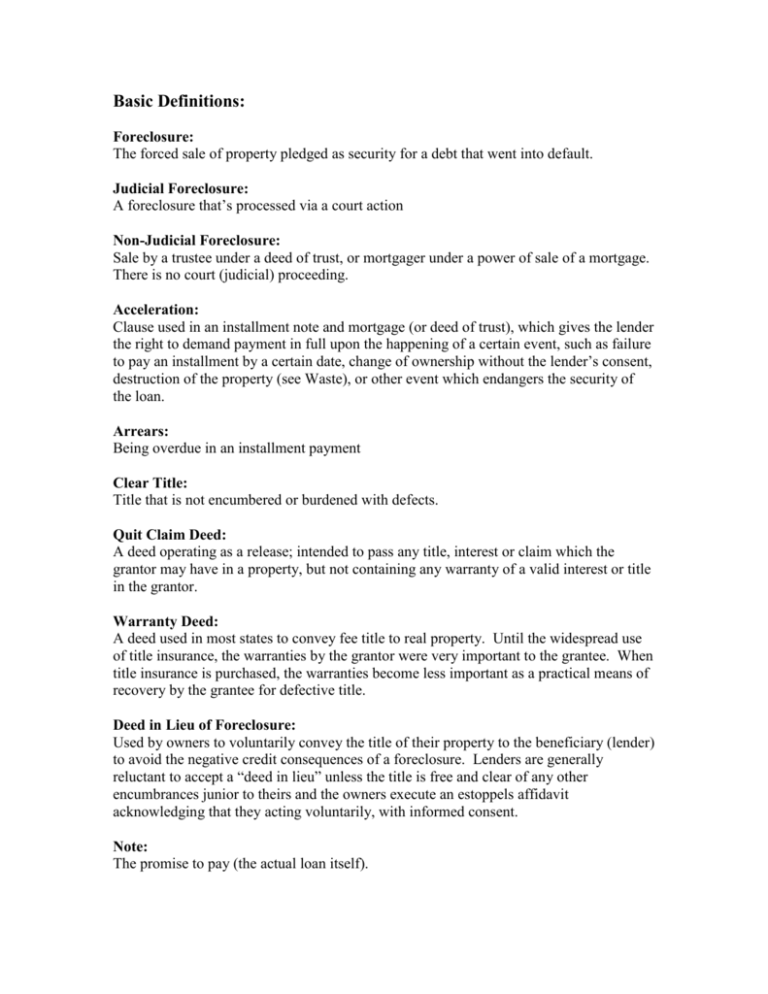
Basic Definitions: Foreclosure: The forced sale of property pledged as security for a debt that went into default. Judicial Foreclosure: A foreclosure that’s processed via a court action Non-Judicial Foreclosure: Sale by a trustee under a deed of trust, or mortgager under a power of sale of a mortgage. There is no court (judicial) proceeding. Acceleration: Clause used in an installment note and mortgage (or deed of trust), which gives the lender the right to demand payment in full upon the happening of a certain event, such as failure to pay an installment by a certain date, change of ownership without the lender’s consent, destruction of the property (see Waste), or other event which endangers the security of the loan. Arrears: Being overdue in an installment payment Clear Title: Title that is not encumbered or burdened with defects. Quit Claim Deed: A deed operating as a release; intended to pass any title, interest or claim which the grantor may have in a property, but not containing any warranty of a valid interest or title in the grantor. Warranty Deed: A deed used in most states to convey fee title to real property. Until the widespread use of title insurance, the warranties by the grantor were very important to the grantee. When title insurance is purchased, the warranties become less important as a practical means of recovery by the grantee for defective title. Deed in Lieu of Foreclosure: Used by owners to voluntarily convey the title of their property to the beneficiary (lender) to avoid the negative credit consequences of a foreclosure. Lenders are generally reluctant to accept a “deed in lieu” unless the title is free and clear of any other encumbrances junior to theirs and the owners execute an estoppels affidavit acknowledging that they acting voluntarily, with informed consent. Note: The promise to pay (the actual loan itself). Mortgage: A security instrument that is recorded against the property that enables the lender (Mortgagee) to sell the property if the borrower (Mortgagor) is in default on the obligations of the Note. Deed of Trust (Trust Deed): A three party security instrument conveying the legal title to real property as security for the repayment of a loan. The owner is called the “Trustor”. The neutral third party to whom the bare legal title is conveyed (and who is called on to liquidate the property if need be) is the “Trustee”. The lender is the “Beneficiary”. When the loan is paid off the trustee is directed by the beneficiary to issue a deed of reconveyance to the Trustor, which extinguishes the trust deed lien. Due on Sale Clause: Provision in a DOT/Mortgage calling for the total pay-off of the loan balance in the event of a sale or transfer of the secured real estate. “First” Trust Deed/Mortgage: A DOT/Mortgage having priority over all other voluntary liens against the property. Forbearance Agreement: The waiting for payment of a debt by a creditor after the debt becomes due. Notice of Default: A notice filed to show that the borrower under a mortgage or deed of trust is in default (behind on payments). Redemption: The process of canceling a defeasible (can be defeated: conditions apply) title to land, such as is created by a mortgage foreclosure or tax sale. Redemption Right: A time period during which a mortgage, land contract, deed of trust, etc., can be redeemed. Usually set by statute, and after judicial foreclosure. Short Sale: A sale of property which includes some forgiveness of debt by the lender under a mortgage or trust deed. The amount of debt forgiven may be considered income to the seller and taxable. Deficiency: The amount for which the borrower is personally liable if the foreclosure sale does not bring enough to cover the debt. Lis Pendens: A legal notice required to show pending litigation relating to real property.
